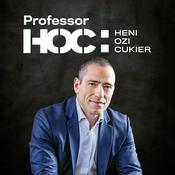5131 episódios
- For changemakers, students, and everyone seeking hope, direction, and clarity during a time of global uncertainty, join us for the launch of a book that serves as both a call to action and a guide for transformation—encouraging readers to imagine and co-create sustainable and just futures.
- Join us as we welcome Carlos Gustavo Fernández Valdovinos, Paraguay’s Minister of Economy and Finance, for a lecture on the country’s economic transformation from crisis management to achieving investment grade.
Mais podcasts de Ensino
Podcasts em tendência em Ensino
Sobre LSE: Public lectures and events
The London School of Economics and Political Science public events podcast series is a platform for thought, ideas and lively debate where you can hear from some of the world's leading thinkers. Listen to more than 200 new episodes every year.
Site de podcastOuça LSE: Public lectures and events, Descobri depois de adulta e muitos outros podcasts de todo o mundo com o aplicativo o radio.net

Obtenha o aplicativo gratuito radio.net
- Guardar rádios e podcasts favoritos
- Transmissão via Wi-Fi ou Bluetooth
- Carplay & Android Audo compatìvel
- E ainda mais funções
Obtenha o aplicativo gratuito radio.net
- Guardar rádios e podcasts favoritos
- Transmissão via Wi-Fi ou Bluetooth
- Carplay & Android Audo compatìvel
- E ainda mais funções


LSE: Public lectures and events
Leia o código,
baixe o aplicativo,
ouça.
baixe o aplicativo,
ouça.








































